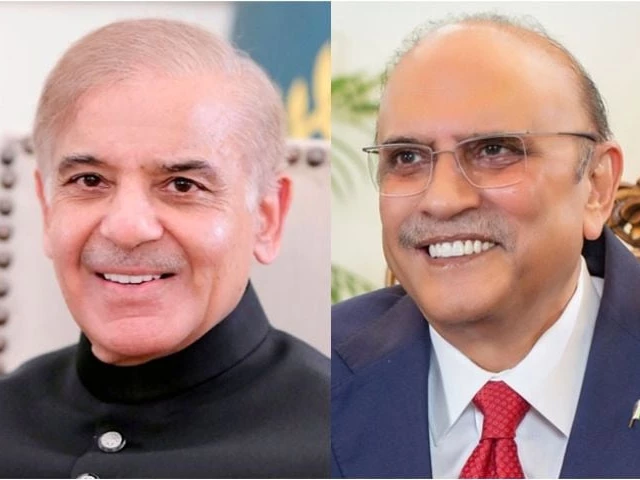President Asif Ali Zardari and Prime Minister Muhammad Shehbaz Sharif extended sincere congratulations to Saudi management and its inhabitants on the occasion of the Saudi national day, praising the deep and lasting link between the two nations on Tuesday.
President Zardari highlighted the in -depth spiritual connection by the presence of the two most sacred sites in Islam in the kingdom. He also noted that the defense and security partnership is an essential step towards regional peace.
The PM Shehbaz has reaffirmed that the historical links of mutual trust and the brotherhood will always remain strong.
This feeling was officially cemented at a benchmark for strategic defense (SMDA) ‘signed on September 17, 2025 at the palace of Al Yamamah in Riyadh.
The agreement aims to “strengthen joint deterrence against any aggression”, declaring that an attack on one or the other country will be considered an attack on both. This formalizes a defense relationship that has been in progress.
Read: Pak-Saudi Defense Pact: an old overhaul of fraternity for a dangerous age
The Pact is the culmination of a partnership that started with a 1951 friendship treaty. Since the 1970s, Pakistani soldiers have been stationed in Saudi Arabia for the sacred duty to protect the Holy Sites.
The collaboration included the training of Saudi military personnel in Pakistani institutions, joint exercises and Pakistani support in key moments, such as the Al-Wadiah war in 1969.
The recent agreement is considered a strategic response to a changing regional security landscape. Analysts suggest that recent instability and perceived threats of an assertive Israel have created an emergency for such a formal NATO style arrangement.
Find out more: Pakistan, KSA signs defense pact
The pact integrates the military capacities of Pakistan with the diplomatic and financial force of Saudi Arabia, creating a significant stabilization force in the region.
Although specific operational details remain confidential, the agreement should involve increased cooperation in training, defense production and strategic planning.
Read also: Riyadh expects Delhi to understand the security needs of the kingdom
The agreement is a defensive framework which guarantees the national interests of the two nations, promising a new era of collective security and deeper bilateral links.




